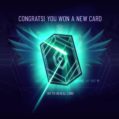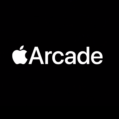Animoca Brands' Yat Siu: M&A, Partnerships, and Trends
by Mathew Broughton on 28th Jan 2020 in News


In the first of this two-part interview series, TheGamingEconomy speaks with Yat Siu (pictured), founder and non-executive chairman of Animoca Brands, following its acquisition of nWay, Inc. in December 2019. In part one: integrating nWay, advertising partnerships, and upcoming developments in mobile gaming.
How do you plan on leveraging the technology and expertise of nWay to enter the competitive gaming space?
One of the things that nWay has really cracked is real-time multiplayer fighting games, which in mobile is not at all straightforward. If you think about real-time multiplayer games, usually this field is reserved for very large companies with particular infrastructure and expertise. We're very fortunate in that we're now able to work with the talented nWay team, who built synchronous multiplayer systems for their own products. It's street fighter-style gameplay, played on mobile, by players all over the world, in real-time (i.e. not asynchronous). They've solved the latency and speed issues, which for competitive gaming, and particularly esports, is always a challenge. If you have video or network lag that causes you to lose the game, that's not good news.
The other capability demonstrated by nWay is its treatment of brands, such as Power Rangers. Our expertise at Animoca Brands is in enrolling famous IPs and brands, and incorporating them with our games. So basically now with nWay we have great technology that’s proven on major brands such as Power Rangers. What can we do with some of our other brands in our library to utilise that technology? We see lots of synergies here.
Will you be integrating with the nWay Play platform (currently in development) or are you leaving that as a standalone unit for the foreseeable future?
nWayPlay is certainly a big part of our strategy. A key advantage of what nWayPlay does is it enables real-time multiplayer capabilities across games. In context, some of our studios, which are very good at making game content, maybe don't quite have all the skills to make massively multiplayer titles. That technology comes in handy and it can't be understated just how much of an investment developing the sort of MMO platform seen in mainstream-type games is for small studios.
There's no real engine out there that can do that in an effective way. People talk about Unity and so on, but those bodies don't provide the multiplayer engines, nor do they solve for latency issues, they just provide you with the framework to build on top of.
How will the partnerships fostered with Versus and Talenthouse be used to enhance the Animoca Brands in-game advertising offering?
In the case of Versus it’s an engagement play - there is advertising potential as well but it's mostly as a prizing system. In this case, it is rewards that can be used in game, on top of an advertising model that's sustainable, and for us there is content generation as well. Say that you as a player are at the top of a leaderboard, or you hit some other in-game success trigger - then Versus would have the framework for us to provide prizing tools and reward mechanisms, which are paid for by advertising. That's great for the gamer because if they do well, they get a prize, it's great for the advertiser because they get exposure. And obviously it's great for us and Versus from a revenue standpoint because we get a cut of the revenue for sponsorship.
Talenthouse is similar but a little different in the sense that you could use it as an acquisition channel, but they're really an influencer platform for artists and creators. Here the connection is more around running very specific campaigns that go viral on social media. They activate networks of creators to create cool campaigns, ads, posters, videos, or designs, for you in a competition style. The sponsor of the event, which in this case would be us, is then allowed to use all of that promotional material. So advertisers can benefit, which in our case, obviously aids distribution and reach. And finally, because we have many connections in the gaming industry, we would up-sell the services of Talenthouse to these as well, and in turn will receive some of the revenue from their campaigns.
What are the key developments in mobile gaming through 2020 that you are monitoring?
One of the big developments that has obviously already emerged, and will continue to become even more significant, is networking multiplayer gaming. This has grown to a certain size, which we've seen in a number of titles such as PUBG, Fortnite, and so on, but I think what we'll see, tied to to why we think nWay is so important, is that these worlds are just going to increase more rapidly. These gaming environments are set to become deep social networks. This is a similar trend to what we saw back in the days of online games and then MOBA games such as DotA, League of Legends, and their many successors. These weren't just wonderful multiplayer games, they were also essentially large and super-engaged social networks.
The other area which we are focused on is non-fungible tokens (NFTs), because they allow true digital ownership. We think that in 2020 we'll see the first elements of mainstream NFTs, where it becomes more than just, "Hey, that's a real nice science experiment!". Eventually, people will start valuing digital items in terms of scarcity and ownership, and then crossover brands will start connecting into that, so you'll see the bigger brands offering digital collectables within existing games, or maybe even their own titles. I think you will see the first large set of users owning digital items where they do so because they understand that these have permanent value to them.
What do you think is the technology that will bring the use of NFT's to the forefront in 2020, or by contrast what has held their adoption back so far?
Well, a number of things have held back NFTs. The major one is when integrating blockchain technology into mobile games, the infrastructure is still fairly new and not straightforward. That means that for regular players who play games, using NFTs is difficult, because, for instance they don't have a token wallet, so they have to set it up, which means they need a cryptographic key, etc. There are a number of steps you have to take before you can even start owning NFTs, so that has to be made better for the user experience. It is entirely possible, it's just something that takes a bit of time.
In terms of what's changed, I think 2020 will be the first year in which games that utilise blockchain technologies will come from studios that know how to make games. When you think about the blockchain games that launched last year, or to some extent the year before, they were generally developed by groups that never made games before. They believe in the idea and they are interested in the technology, but they don't really know how to make games. I believe this will be the year where companies like Animoca Brands and others, for whom the business of making games is their bread and butter, will integrate blockchain technology in mainstream games. Therefore the first wave of real adoption will happen for people who do not have blockchain today. Out of those who play blockchain games at this moment in time, I would say 99% of them are people who already understand blockchain, have a wallet, probably own some Bitcoins or other digital currency. Whereas I think this year we're going to get a large wave of users that move on to blockchain because they want to play a particular game, not because they specifically set out to own digital currency.







Follow TheGamingEconomy